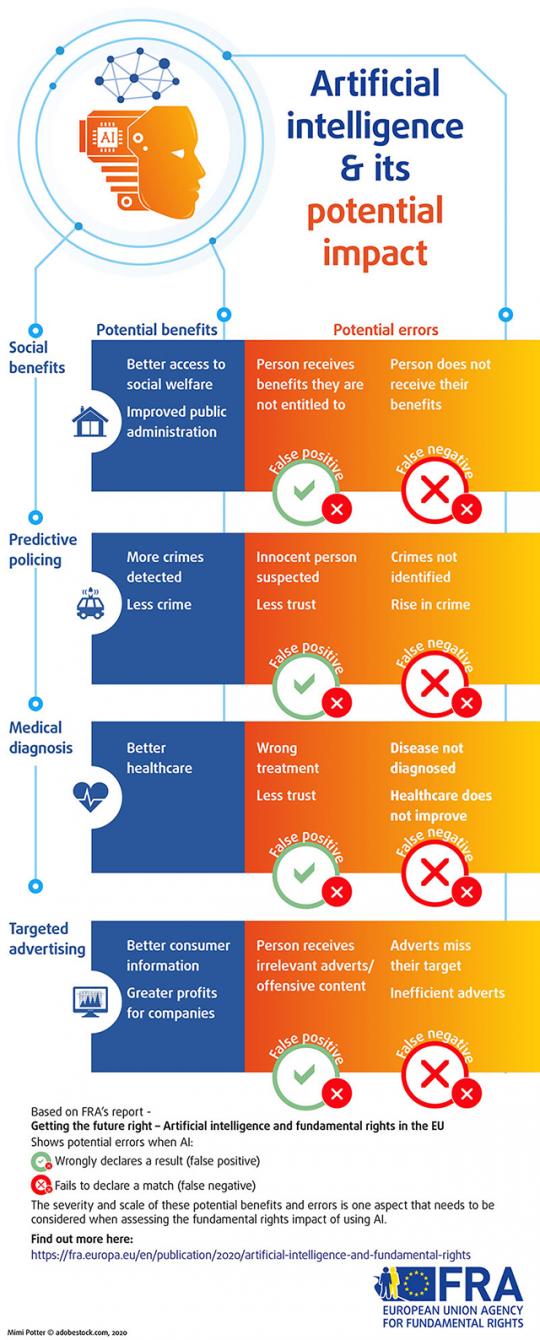Artificial intelligence & its potential impact
Social benefits
Potential benefits
- Better access to social welfare
- Improved public administration
Potential errors
- False positive - Person receives benefits they are not entitled to
- False negative - Person does not receive their benefits
Predictive policing
Potential benefits
- More crimes detected
- Less crime
Potential errors
- False positive - Innocent person suspected; Less trust
- False negative - Crimes not identified; Rise in crime
Medical diagnosis
Potential benefits
Potential errors
- False positive - Wrong treatment; Less trust
- False negative - Disease not diagnosed; Healthcare does not improve
Targeted advertising
Potential benefits
- Better consumer information
- Greater profits for companies
Potential errors
- False positive - Person receives irrelevant adverts/ offensive content
- False negative - Adverts miss their target; Inefficient adverts
Based on FRA’s report - Getting the future right – Artificial intelligence and fundamental rights in the EU
Shows potential errors when AI:
- Wrongly declares a result (false positive)
- Fails to declare a match (false negative)
The severity and scale of these potential benefits and errors is one aspect that needs to be considered when assessing the fundamental rights impact of using AI.
